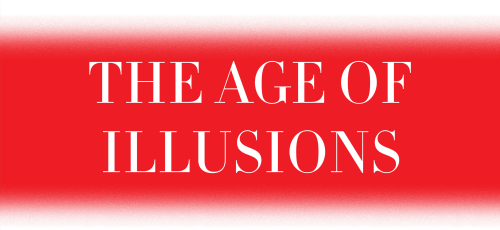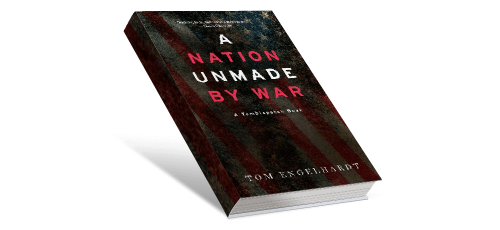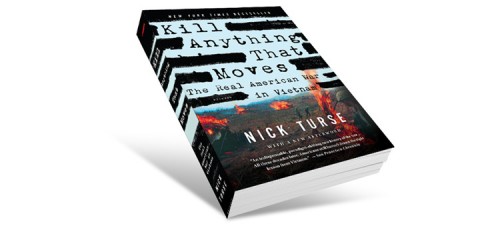
Donald Trump and the Ten Commandments (Plus One) of the National Security State
Andrew Bacevich
Let us stipulate at the outset that Donald Trump is a vulgar and dishonest fraud without a principled bone in his corpulent frame. Yet history is nothing if not a tale overflowing with irony. Despite his massive shortcomings, President Trump appears intent on recalibrating America’s role in the world. Initiating a long-overdue process of aligning U.S. policy with actually existing global conditions just may prove to be his providentially anointed function. Go figure.
The Valhalla of the Indispensable Nation is a capacious place, even if it celebrates mostly white and mostly male diversity. Recall that in the eighteenth century, it was a slaveholding planter from Virginia who secured American independence. In the nineteenth, an ambitious homespun lawyer from Illinois destroyed slavery, thereby clearing the way for his country to become a capitalist behemoth. In the middle third of the twentieth century, a crippled Hudson River grandee delivered the United States to the summit of global power. In that century’s difficult later decades, a washed-up movie actor declared that it was “morning in America” and so, however briefly, it seemed to be. Now, in the twenty-first century, to inaugurate the next phase of the American story, history has seemingly designated as its agent a New York real estate developer, casino bankruptee, and reality TV star.
In all likelihood, George Washington, Abraham Lincoln, Franklin Delano Roosevelt, and Ronald Reagan would balk at having Donald Trump classified as their peer. Yet, however preposterously, in our present moment of considerable crisis, he has succeeded them as the nation’s Great Helmsman, albeit one with few ideas about what course to set. Yet somehow Trump has concluded that our existing course has the United States headed toward the rocks. He just might be right.

It’s Not Just Britain Headed for the Subbasement of Imperial History
Tom Engelhardt
Donald Trump may prove to be the ultimate Brexiteer. Back in August 2016, in the midst of his presidential campaign, he proudly tweeted, “They will soon be calling me MR. BREXIT!” On the subject of the British leaving the European Union (EU) he’s neither faltered nor wavered. That June, he was already cheering on British voters, 51.9% of whom had just opted for Brexit in a nationwide referendum. They had, he insisted, taken “their country back” and he predicted that other countries, including you-know-where, would act similarly. As it happened, Mr. “America First” was proven anything but wrong in November 2016.
Ever since, he’s been remarkably eager to insert himself in Britain’s Brexit debate. Last July, for instance, he paid an official visit to that country and had tea with the queen (“an incredible lady… I feel I know her so well and she certainly knows me very well right now”). As Politico put it at the time, “In just a matter of a few hours, he snubbed the leader of the opposition — who wants a close relationship with the EU after Brexit and if he can’t get it, advocates a second referendum on the options — in favor of meeting with two avid Brexiteers and chatting with a third.” Oh, and that third person just happened to be the man who would become the present prime minister, Brexiteer-to-hell Boris Johnson.
Since then, of course, he’s praised Johnson’s stance — get out now, no deal — to the heavens, repeatedly promising to sign a “very big” trade agreement or “lots of fantastic mini-deals” with the Brits once they dump the European Union. (And if you believe there will be no strings attached to that generous offer, you haven’t been paying attention to the presidency of one Donald J. Trump.) In Britain itself, sentiment about Brexiting the EU remains deeply confused, or perhaps more accurately disturbed, and little wonder. It’s clear enough that, from the economy to medical supplies, cross-Channel traffic snarl-ups to the Irish border, a no-deal Brexit is likely to prove problematic in barely grasped ways, as well as a blow to living standards. Still, there can be little question that the leaving option has been disturbing at a level that goes far deeper than just fear of the immediate consequences.

As the World Looks Away, Death Stalks the Democratic Republic of Congo
Nick Turse
GOMA, North Kivu Province, Democratic Republic of Congo — The boy was sitting next to his father, as he so often did. He mimicked his dad in every way. He wanted to be just like him, but Muhindo Maronga Godfroid, then a 31-year-old primary school teacher and farmer, had bigger plans for his two-and-a-half-year-old son. He would go to university one day. He would become a “big name” — not just in their village of Kibirizi, but in North Kivu Province, maybe the entire Democratic Republic of Congo. The boy was exceedingly smart. He was, Godfroid said, “amazing.” He could grow up to be a leader in a country in desperate need of them.
Kahindo Jeonnette was just putting dinner on the table when someone began pounding on the front door. “Open! Open! Open!” a man yelled in Swahili. Jeonnette was startled.
The 24-year-old mother of two looked at her husband. Godfroid shook his head. “I can’t open the door unless you say who you are,” she called out.
“I’m looking for your husband. I’m his friend,” came the response.
“It’s too late now. My husband can’t come out. Come back tomorrow,” she replied.
The man shouted, “Then I’m going to open it!” and pumped several bullets into the door. One tore through Godfroid’s left hand, leaving him with just a thumb and two-and-a-half fingers. For a moment, he was stunned. The pain had yet to hit him and he couldn’t quite piece together what had happened. Then he turned his head and saw his tiny son splayed out on the floor.
The grieving parents can’t even bring themselves to utter their late son’s name. “I’ll never forget seeing my baby lying there,” Jeonnette told me, her eyes red and glassy, as we sat in the kitchen of her two-room, clapboard home in a tumbledown area of Goma, the capital of North Kivu Province. “I close my eyes and that’s all I can see.”

Putting Donald Trump’s Impeachment in Context
Andrew Bacevich
There is blood in the water and frenzied sharks are closing in for the kill. Or so they think.
From the time of Donald Trump’s election, American elites have hungered for this moment. At long last, they have the 45th president of the United States cornered. In typically ham-handed fashion, Trump has given his adversaries the very means to destroy him politically. They will not waste the opportunity. Impeachment now — finally, some will say — qualifies as a virtual certainty.
No doubt many surprises lie ahead. Yet the Democrats controlling the House of Representatives have passed the point of no return. The time for prudential judgments — the Republican-controlled Senate will never convict, so why bother? — is gone for good. To back down now would expose the president’s pursuers as spineless cowards. The New York Times, the Washington Post, CNN, and MSNBC would not soon forgive such craven behavior.
So, as President Woodrow Wilson, speaking in 1919 put it, “The stage is set, the destiny disclosed. It has come about by no plan of our conceiving, but by the hand of God.” Of course, the issue back then was a notably weighty one: whether to ratify the Versailles Treaty. That it now concerns a “Mafia-like shakedown” orchestrated by one of Wilson’s successors tells us something about the trajectory of American politics over the course of the last century and it has not been a story of ascent.
